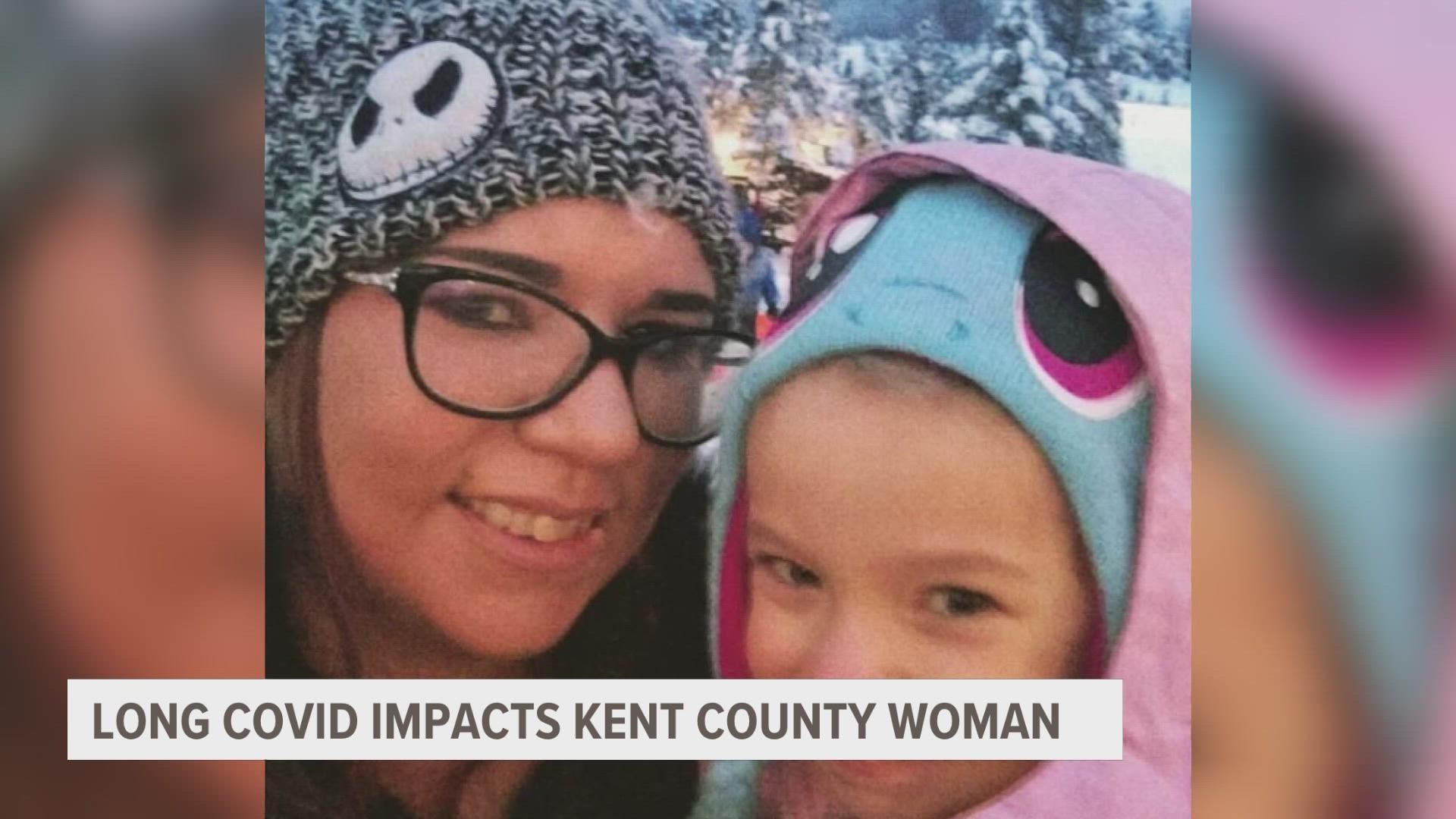COMSTOCK PARK, Mich. — About one in five adults who have had COVID-19 say they still have symptoms of long COVID. More than 3,500 Americans have died from long COVID-related illnesses since the start of the pandemic.
Almost a year since a Kent County woman contracted COVID-19, she says she's still not better. Long COVID is considered a disability.
"We got really sick," Randi Mis of Comstock Park says.
Ever since COVID-19 struck her family last January, her symptoms have continued to linger.
"[My husband] Josh and [my daughter] Lily recovered pretty well. And for me, it just, nothing ever really went away," Mis says.
She has the usual long COVID symptoms, like a persistent cough and neuropathy in her hands.
"It feels like burning pins and needles. And that was horrible," Mis says. "I've had a couple of bouts of that. They last about a week or two. And then they go away. Most of these symptoms kind of do that. They'll pop up and lasts for a couple of weeks and then go away."
Mis says the worst part though is the chronic fatigue and brain fog, often making her tired and forgetful.
"In the beginning, people laugh about the the brain fog because I'll like switch words around or stutter and it's like, 'Oh, you said that, it's kind of funny,'" she says. "But it's not funny anymore."
She's had to step away from work and avoid driving sometimes. She's not just worried about getting better for herself, but for her daughter as well.
"I can't do the things I want to do with my daughter. She wants to go run and play, and I can barely walk up the stairs," Mis says. "My daughter has been affected. She's developing some anxiety about things."
As for treatment, she says she visits multiple specialists for multiple different remedies.
Dr. Larry Morgan with Bronson Healthcare says it's not a one size fits all standard for everyone with long COVID.
"The goal of treatment is to treat the symptoms as best as possible, essentially making them manageable so people can get back to their lives," he says.
Dr. Morgan says long COVID impacts both the people and the healthcare systems.
"It means that people are having to make multiple different doctors appointments, right, for multiple different specialists," he says. "That means multiple different co-pays, that means potentially multiple different medications."
Without an end in sight, Mis says it's taken a toll on her.
"I've come to accept that I'm disabled in a way right now. I pray I'm going to get better and that this doesn't last a long time," she says.
Mis says she hopes there is more research done on this so that there are more answers and more treatments are developed.
"People need to know about it more. There needs to be more research on this, because COVID is here, it's gonna be here for a while. And there is a good chance people could get this," she says. "It's not something that is rare. Every time I talk to, you know, tell someone about it, they usually say, 'Oh, I know so and so that's gone through something similar.' So, I would just like people to be more aware of how serious it is."
Because her family is living on one income right now, Mis set up a GoFundMe to help make ends meet this holiday season.
"It's just super hard for me to ask for help. But I'm at the point where I don't know how we're gonna pay rent. I don't know how I'm gonna, you know, get some Christmas gifts," she says. "I think in the next few months, we'll probably all start some kind of family counseling to just really talk about what's happened and how everything's different."
►Make it easy to keep up to date with more stories like this. Download the 13 ON YOUR SIDE app now.
Have a news tip? Email news@13onyourside.com, visit our Facebook page or Twitter. Subscribe to our YouTube channel.

